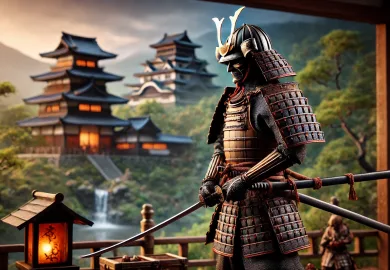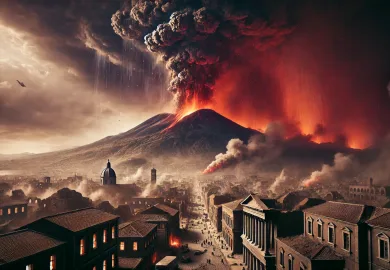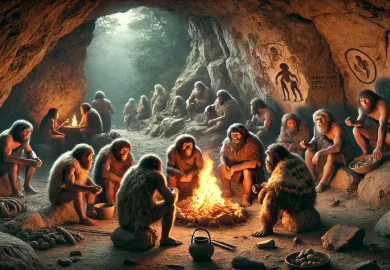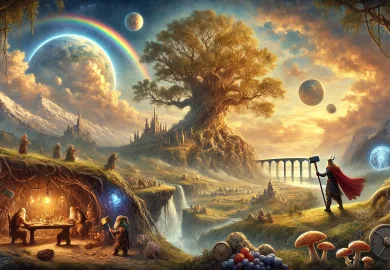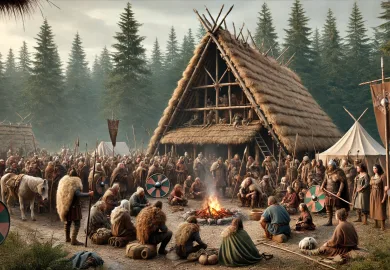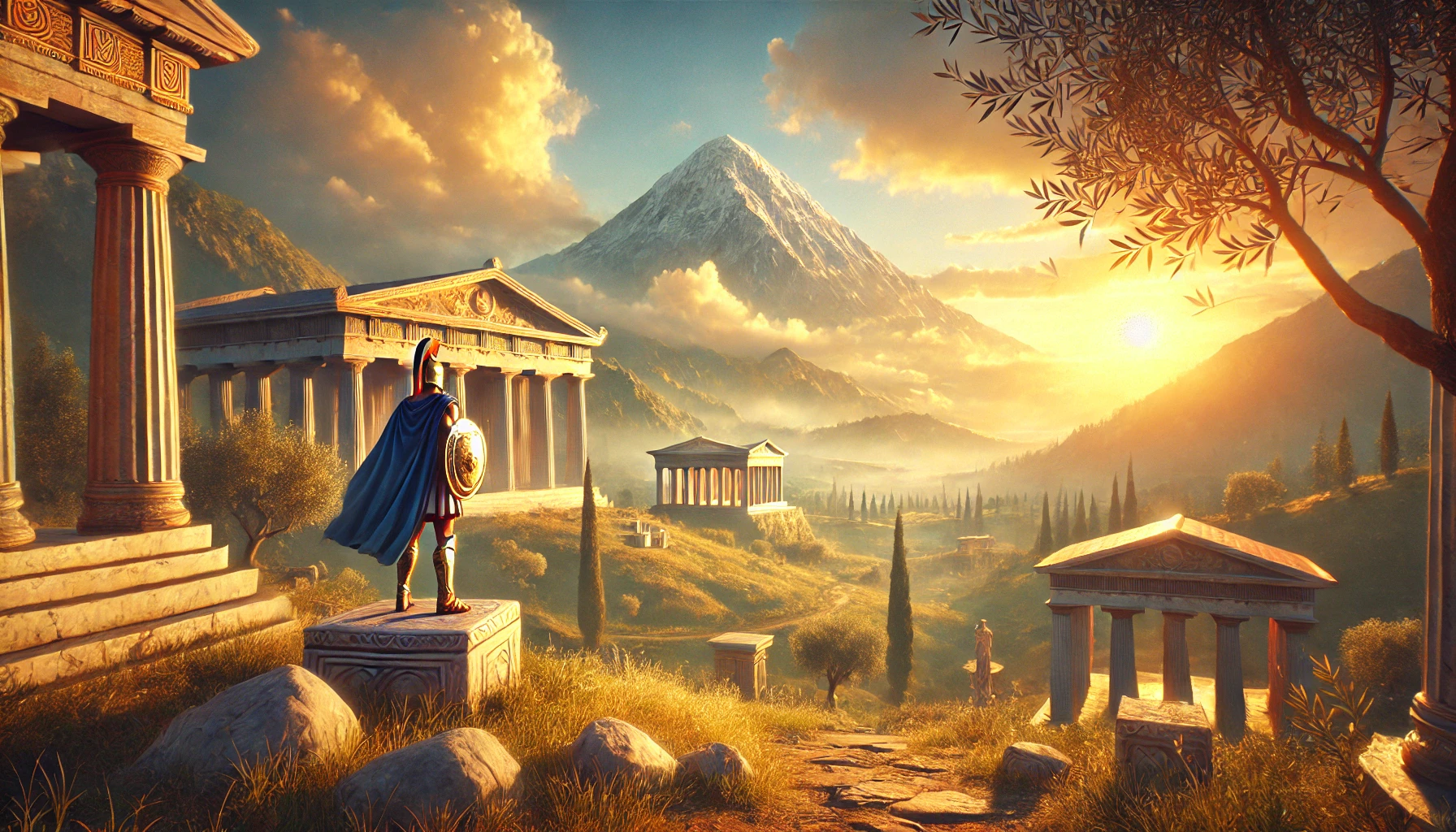
Disclaimer: This content was generated using AI. While I strive for accuracy, I encourage readers to verify important information. I use AI-generated content to increase efficiencies and to provide certain insights, but it may not reflect human expertise or opinions.
Ancient Greek mythology remains one of the most captivating collections of stories, myths, and fables that continue to influence modern culture. These stories, dating back thousands of years, feature gods, goddesses, and heroes whose adventures have shaped literature, art, and even language. Whether you’re fascinated by the powerful gods on Mount Olympus, the courageous feats of Greek heroes, or the moral lessons hidden in every tale, the world of ancient Greek mythology offers something for everyone.
The intricate tapestry of Greek myths not only explains the origins of humanity and the natural world but also delves into the complexities of human nature. By understanding these timeless tales, we gain insight into how the ancient Greeks viewed the universe and their place within it.
The Pantheon of Greek Gods: Rulers of Olympus
In ancient Greek mythology, the Greek gods and goddesses reigned supreme from Mount Olympus, their mythical home. Each god and goddess had distinct personalities, powers, and domains, and they often interacted with humans, sometimes aiding them, sometimes punishing them. These deities were integral to the daily lives of the Greeks, who believed that the gods controlled natural forces and human destiny.
One of the most powerful gods was Zeus, the king of the gods, who wielded lightning as his weapon. He ruled the sky and was often depicted as the most important deity in the pantheon. His siblings, Poseidon and Hades, ruled the seas and the underworld, respectively. While Zeus was associated with law and order, Poseidon governed storms and earthquakes, and Hades oversaw the souls of the dead.
The goddesses were equally significant. Hera, Zeus’ wife and queen of the gods, was known as the protector of marriage and women. Athena, born from Zeus’ head fully armored, represented wisdom and warfare. She was a favorite among heroes and was said to guide them in their quests. Aphrodite, the goddess of love and beauty, had the power to influence love and desire among both mortals and gods.
The pantheon of Greek gods was complex, with countless other deities governing aspects of life, such as Demeter, the goddess of the harvest, and Artemis, the goddess of the hunt. Together, these gods and goddesses formed a rich tapestry of divine characters, each contributing to the cosmic balance and the human experience.
Heroes of Ancient Greek Mythology: Courage and Tragedy
The heroes of Greek mythology were often mortals or demigods, born from the union of gods and humans. These figures were renowned for their extraordinary abilities, courage, and sometimes tragic fates. Many of these heroes embarked on perilous adventures, encountering monsters, gods, and supernatural challenges along the way.
Perhaps the most famous Greek hero is Hercules, known for his incredible strength and his Twelve Labors. These labors, including the slaying of the Nemean Lion and capturing the Golden Hind of Artemis, were near-impossible tasks that tested his endurance and bravery. Hercules’ story is a tale of redemption, as he undertook these labors to atone for a grievous crime he committed while under the influence of madness sent by Hera.
Another legendary figure is Odysseus, the clever king of Ithaca. His journey home after the Trojan War, as chronicled in Homer’s Odyssey, is filled with trials that showcase his cunning, wit, and determination. From outwitting the Cyclops to resisting the seductive Sirens, Odysseus remains a symbol of perseverance.
Perseus, another renowned hero, is famous for slaying the Gorgon Medusa, whose gaze could turn anyone to stone. With the help of divine gifts, such as Hermes’ winged sandals and Athena’s shield, Perseus completed this daring feat and went on to save the princess Andromeda, whom he later married.
These heroes, while celebrated for their victories, were also deeply flawed, and their stories often ended in tragedy. Their struggles and eventual downfalls reflect the ancient Greeks’ understanding of the fragility of life and the inevitability of fate, themes that resonate with readers even today.
Greek Mythology and the Creation of the World
One of the most fascinating aspects of Greek mythology is the collection of stories that explain the creation of the world and the origins of gods and humans. These myths form the foundation of the ancient Greeks’ worldview and offer insight into their understanding of the cosmos.
According to Greek mythology, in the beginning, there was Chaos, a void from which everything emerged. From Chaos came Gaia, the personification of the Earth, and Uranus, the sky. Together, they produced the Titans, a race of powerful deities that predated the Olympian gods. The leader of the Titans, Cronus, overthrew his father Uranus and ruled over the universe.
However, Cronus was eventually overthrown by his own son, Zeus, after a fierce battle known as the Titanomachy. With the Titans defeated, Zeus and his siblings established their reign on Mount Olympus, marking the beginning of the age of the Olympian gods.
The myth of Prometheus, one of the Titans, offers a unique perspective on the creation of humanity. Prometheus defied Zeus by giving humans the gift of fire, symbolizing knowledge and civilization. As punishment, Zeus chained Prometheus to a rock where an eagle would eat his liver every day, only for it to regenerate and repeat the torment.
These myths serve as allegories for the ancient Greeks’ understanding of life, death, and the forces that shaped their world. They provided explanations for natural phenomena and helped the Greeks make sense of their existence in an unpredictable and often harsh environment.
The Enduring Influence of Greek Mythology
The stories of Greek mythology continue to captivate modern audiences and remain deeply influential in contemporary culture. From literature and art to psychology and film, the myths of ancient Greece have left an indelible mark on the world.
In literature, the works of Homer, such as The Iliad and The Odyssey, are still considered masterpieces and are studied for their poetic beauty and narrative complexity. The themes of love, betrayal, heroism, and revenge found in Greek mythology are universal and timeless, making these stories relevant across cultures and eras.
In psychology, the Oedipus complex, coined by Sigmund Freud, is directly inspired by the Greek myth of Oedipus, who unknowingly killed his father and married his mother. This mythological influence reflects the deep psychological insights embedded within these ancient stories.
Greek mythology also continues to inspire modern cinema and television. Films like Clash of the Titans and Troy, along with numerous adaptations of the stories of Hercules, Perseus, and Odysseus, bring these legendary characters to life for contemporary audiences. The enduring appeal of these myths lies in their ability to explore universal human emotions and moral dilemmas.
Additionally, the myths of ancient Greece have influenced the naming of celestial bodies, with planets and moons named after gods and heroes from Greek mythology. The legacy of these ancient stories is truly cosmic, reaching far beyond the boundaries of the Earth.
In conclusion, the myths of ancient Greek mythology provide a fascinating glimpse into the beliefs, values, and imaginations of the ancient Greeks. The pantheon of gods and goddesses, the tales of heroic feats and tragic downfalls, and the profound stories of creation and fate continue to resonate with modern audiences. Whether you are drawn to the divine drama of Mount Olympus, the epic adventures of Greek heroes, or the philosophical insights hidden in these ancient tales, Greek mythology remains a timeless source of inspiration and wonder.


